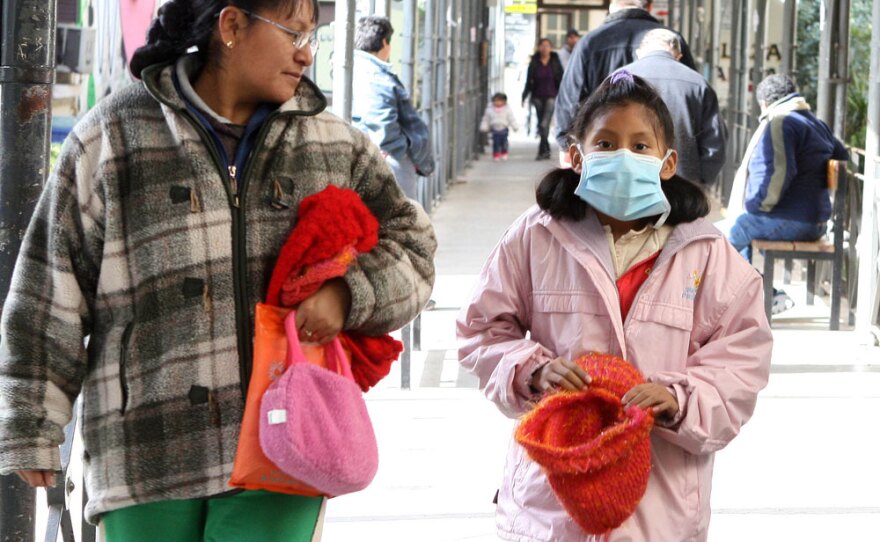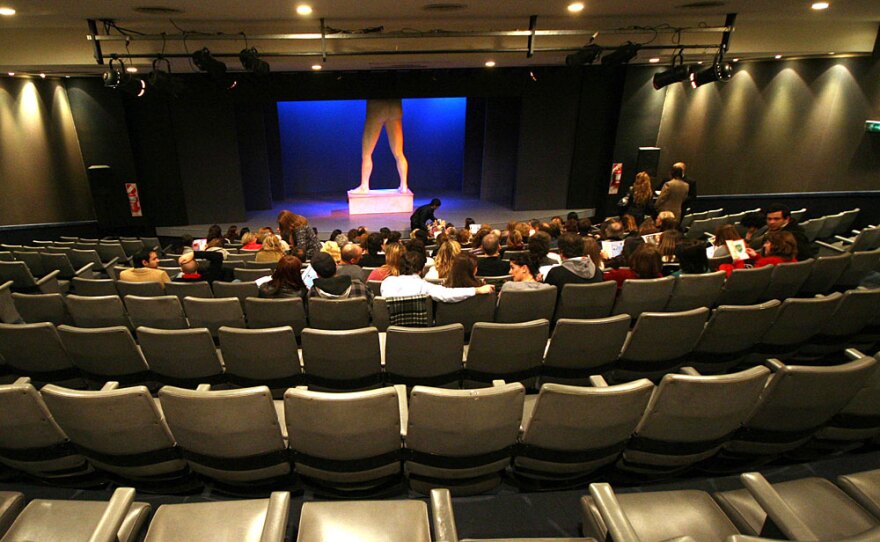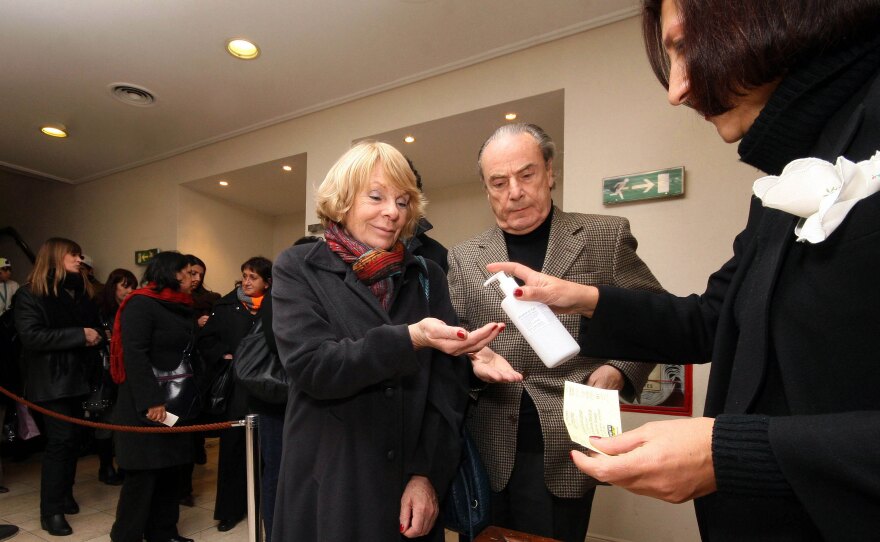In Argentina, swine flu has killed more than 160 people — more than Mexico, where the epidemic began, and the highest death toll outside the United States. The spread of the disease has public health officials scrambling, and it has hurt an economy already reeling from the worldwide economic crisis.
One sector that has been battered is Argentina's vibrant theater industry. It is Latin America's richest, with hundreds of venues.
Children's theater has been hit especially hard. At a recent performance of Zorro in Buenos Aires, the crowd was enthusiastic as children — some as young as three — cheered the swashbuckling production that featured live horses, plenty of slapstick and lots of sword fights.
But only half the 800 seats were filled.
The Gutierrez Children's Hospital in the Argentine capital, Buenos Aires, has seen more children with swine flu than anywhere else in the country of 40 million.

Dr. Eduardo Lopez, chief of the medical department and one of the country's top epidemiologists, says the disease spread to the country after an Argentine teenager returned from a trip to Florida.
"We estimate — and I agree with the health ministry — that at least 100,000 people were affected," Lopez says.
He says the worst has passed, and that he attributes to a public health campaign.
Winter vacations for schoolchildren were extended from two weeks to four, and Argentines were urged to avoid public spaces.
Restaurants, cafes, tango clubs and museums in Buenos Aires, a cosmopolitan, European-style metropolis, have seen business plummet, too.
But it's been particularly painful for theater — where July is the top ticket-generating month.
Carlos Rottemberg owns seven theaters. He says theaters closed for 10 days and that ticket sales plummeted.
Rottemberg says swine flu hit just when theaters were gearing up with investments — more productions to cope with the high season. Now, he says, 2009 may be a wash.

Four flights down from his office in the Multiteatro, people formed a line on a recent evening to see a play about relationships, La Forma De Las Cosas, or The Way Things Are.
In the past, the critically acclaimed show would have run late into the year. Now, it's about to close.
Gaston Martinez is a theater fan who is worried about the flu, but says he had to go to see this play.
"Yes, we're all worried," he says, adding that rumors had generated panic.
If the proper precautions are taken, Martinez says, there's no problem.
Martinez and a friend, like everyone else in line, had to lather their hands with disinfectant after handing their ticket to a ticket-taker.
But as the curtain rose, and music for the play began, only a quarter of the seats were filled.
Argentina is a country accustomed to sharp ups and downs. Theater has thrived through economic crises and military dictatorships.
But the flu is another story.
Daniela Meroni, a typical middle-class resident in Buenos Aires, says she usually goes to the theater once a week, and she often brings her young son.
Meroni says she has a list of plays and shows she wants to see, but she is afraid of getting sick ad spreading the virus to her son.
The show may go on, but she says she's not ready to go back.
Copyright 2022 NPR. To see more, visit https://www.npr.org. 9(MDAzMjM2NDYzMDEyMzc1Njk5NjAxNzY3OQ001))






